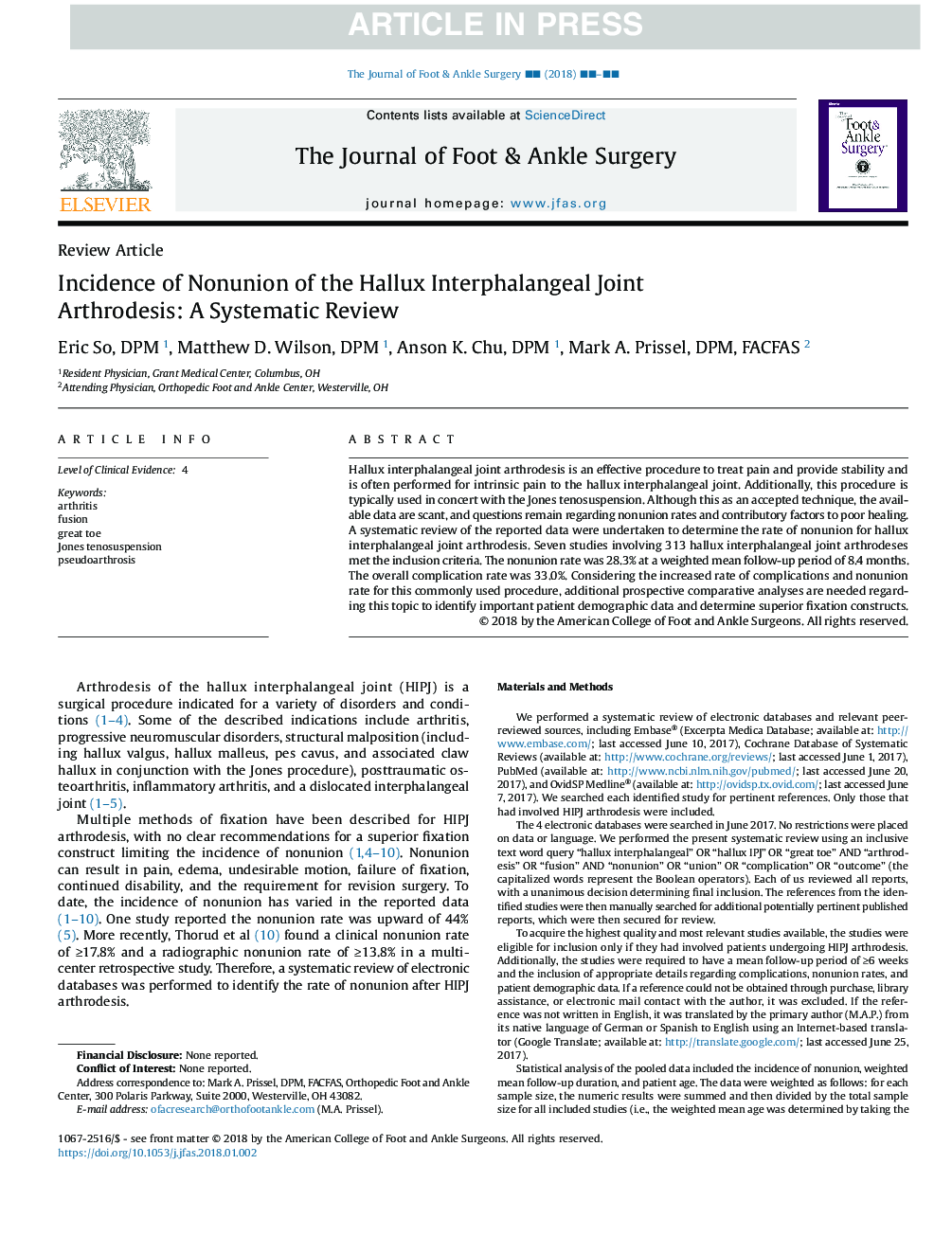| Article ID | Journal | Published Year | Pages | File Type |
|---|---|---|---|---|
| 8602872 | The Journal of Foot and Ankle Surgery | 2018 | 5 Pages |
Abstract
Hallux interphalangeal joint arthrodesis is an effective procedure to treat pain and provide stability and is often performed for intrinsic pain to the hallux interphalangeal joint. Additionally, this procedure is typically used in concert with the Jones tenosuspension. Although this as an accepted technique, the available data are scant, and questions remain regarding nonunion rates and contributory factors to poor healing. A systematic review of the reported data were undertaken to determine the rate of nonunion for hallux interphalangeal joint arthrodesis. Seven studies involving 313 hallux interphalangeal joint arthrodeses met the inclusion criteria. The nonunion rate was 28.3% at a weighted mean follow-up period of 8.4 months. The overall complication rate was 33.0%. Considering the increased rate of complications and nonunion rate for this commonly used procedure, additional prospective comparative analyses are needed regarding this topic to identify important patient demographic data and determine superior fixation constructs.
Related Topics
Health Sciences
Medicine and Dentistry
Orthopedics, Sports Medicine and Rehabilitation
Authors
Eric DPM, Matthew D. DPM, Anson K. DPM, Mark A. DPM, FACFAS,
